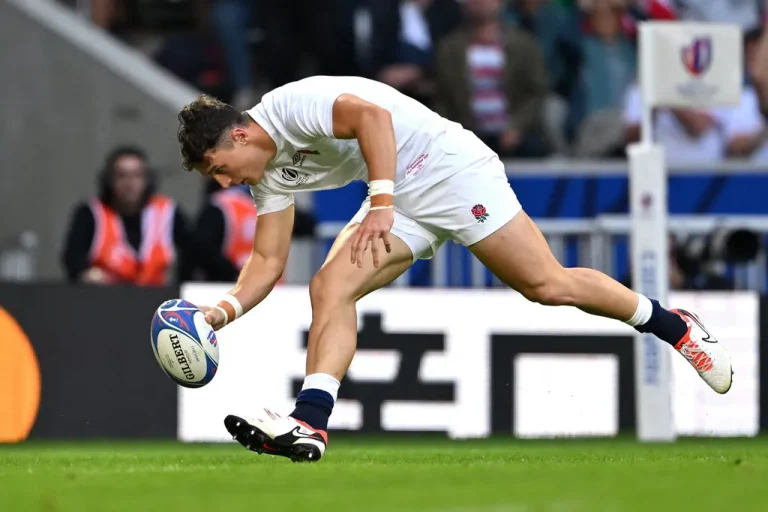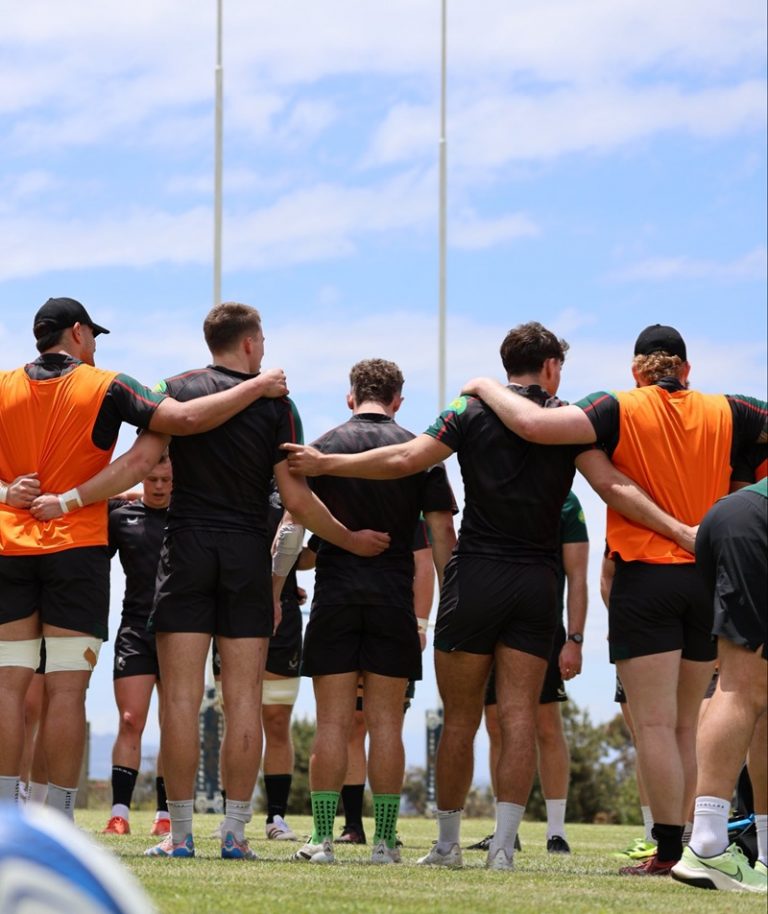At just 19 years old, Kepu Tuipulotu, a young hooker with exceptional talent, is drawing attention across the rugby world. Born in Wales to Tongan parents, he currently plays for Bath and could soon represent England. His decision, which has sparked mixed reactions from both sides, raises questions about England’s ability to attract young talents to the Red Rose.

Kepu Tuipulotu: Between Welsh Roots and English Ambitions
Born in Pontypool, Kepu Tuipulotu grew up in a family deeply connected to its Tongan heritage while also being firmly rooted in Welsh rugby. He quickly made a name for himself on local pitches, showcasing a rare combination of raw power, agility, and game intelligence. However, it was in England that he chose to further his development, enrolling at the prestigious Harrow School—an institution that has also produced rugby stars such as Maro Itoje, Billy Vunipola, and Henry Arundell. This decision marked a turning point in his career. At Harrow, Tuipulotu benefitted from an elite sporting and academic environment that accelerated his growth. He was soon spotted by England’s youth selectors and earned a call-up to the U18 squad.
Since then, his rise has been meteoric. Signed by Bath—a club renowned for nurturing young talent—he made his Premiership debut with remarkable composure for his age. His mobility, ability to read the game, and physical impact both in the scrum and open play have quickly made him a key player. Bath sees enormous potential in him, and his rapid integration into European competitions confirms that he is built for the highest level. However, his early move to England raises concerns about Wales’ ability to retain its brightest prospects in the face of England’s superior rugby system.
The Welsh Talent Drain and Criticism of the WRU
Tuipulotu’s decision to commit to England highlights a growing issue in international rugby. For years, Wales has struggled to keep hold of its top young prospects. The English Rugby Football Union (RFU), with significantly greater financial and structural resources, frequently lures Welsh talent through scholarships and professional club opportunities. The case of Immanuel Feyi-Waboso—another Welsh prospect who chose to play for England—already sparked considerable debate.
This trend is facilitated by World Rugby’s eligibility rules, which allow players to represent a nation after three years of residency or schooling. Having spent part of his teenage years in England, Tuipulotu meets these criteria and is now eligible for the Red Rose. This situation exposes the shortcomings of the Welsh Rugby Union (WRU), which has struggled to create a competitive and attractive pathway for its young players. With Welsh rugby currently in a deep crisis—highlighted by twelve consecutive defeats leading up to the Six Nations—the loss of talents like Tuipulotu is another major setback. Fans’ frustration is growing, particularly as the WRU has yet to implement an effective strategy to curb the exodus.
A Well-Considered Decision
When asked about his choice, Kepu Tuipulotu made it clear that he remains proud of his Welsh and Tongan heritage. “Wales is my homeland, and I’ll always be proud of that,” he said in a recent interview. However, he emphasized that his decision to represent England is primarily based on the opportunities he has received. “My development in England has been crucial, and I’ve always felt incredible support from the clubs and coaches here. It’s an environment that pushes me to be the best version of myself.”
Tuipulotu also highlighted the importance of the infrastructure and resources available in England. At Bath, he benefits from top-tier coaching and facilities, both athletically and personally. “I know this decision might disappoint some people, but I have to think about my future and what’s best for my career,” he explained maturely. For him, playing for the Red Rose represents a unique opportunity to compete at the highest level in a competitive and ambitious team.
His comments also reflect a pragmatic view of the current state of Welsh rugby. “I have great respect for Welsh rugby, but we have to be realistic. The environment in England is more structured, more competitive, and that aligns better with my ambitions,” he added. While his decision may draw criticism, it underscores a reality in modern rugby—where young talents are increasingly drawn to nations that offer the best conditions for their development.



